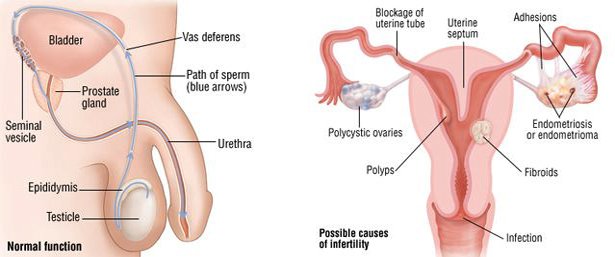Fertility - Unable to get pregnant
Infertilty Treatment
Standard medical textbooks define infertility as the "failure to conceive following one year of unprotected sexual intercourse." For young and healthy heterosexual couples having frequent intercourse, about 85% will be pregnant after one year of trying and about 93% will be pregnant after two years of trying to conceive.

Failure to conceive following one year of unprotected intercourse if under 35 years of age or six months if over 35.
Timely Evaluations
Initial infertility evaluations should be individualized by an infertility specialist, taking into consideration the medical history of the couple and the age of the female partner.
The following are Pacific Fertility Center's guidelines for when to begin medical evaluation for infertility.
- Women less than 35 years of age: Begin after one year of trying
- Women 35-39: Begin after approximately six months of adequately timed intercourse or inseminations.
- Women 40 and over: Begin after three months. We do this because we recognize that female age is one of the most important predictors of subsequent conception. When female age is a factor, moving more aggressively towards completing the evaluation and initiating infertility treatment can help to maximize the chances of pregnancy.
True Infertility
It is important to understand that human reproduction appears to be relatively inefficient. In any one month, it is estimated that of 100 young and healthy heterosexual couples attempting to conceive, about 25 couples will successfully do so and about 75 will fail. True infertility only occurs in a few specific situations:
- Women with blocked fallopian tubes
- Women that have no uterus or no egg follicles (due to menopause or premature ovarian failure)
- Men who have no sperm In these situations, successful conception will only occur with the use of specific infertility treatment. Sometimes the use of a third party is necessary to provide eggs, sperm or a uterus to carry the pregnancy.